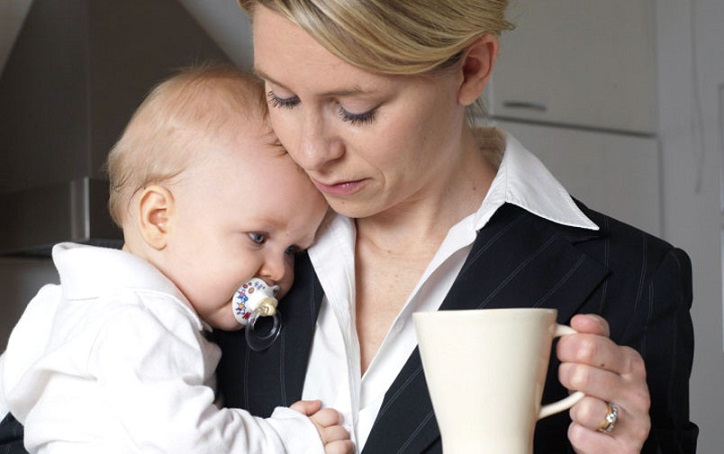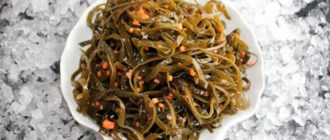In this article, we will consider whether it is possible for a young mother who breastfeeding, drink coffee.
Contents
- Is it possible to drink coffee during breastfeeding?
- How much coffee is allowed to drink to mom during breastfeeding: permissible dosages
- Coffee during breastfeeding: Does caffeine affect the breast milk and body of the baby?
- Can a lot of caffeine harm the child?
- What type of coffee during breastfeeding to give preference?
- Coffee coffee during breastfeeding: is it so useful?
- How to replace coffee during breastfeeding and in what products are there caffeine?
- What products should be avoided when using coffee lactating mom?
- Video: cocoa, teas and coffee during breastfeeding
Coffee is a special drink that so fragrantly beckons to itself. Without it, many of us no longer represent our morning, relaxation, relaxation and charge of vigor. And then the last aspect is acutely in the way of young mothers who breastfeed. After all, a systematic lack of sleep makes itself felt. And sometimes I really want to pamper myself with this delicious drink. But whether it is possible to drink coffee during breastfeeding - the question is quite controversial, which we decided to make out today.
Is it possible to drink coffee during breastfeeding?
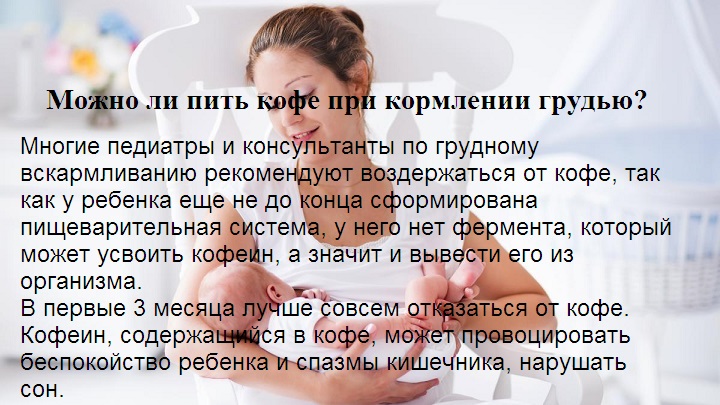
Coffee since the time of its appearance has caused fears about the benefit of the body. After all, he really gave a certain surge of vigor, driving away his drowsiness. For this reason, many are afraid to drink coffee during breastfeeding. After all, it is believed that then the child will sleep badly, become nervous and restless. Therefore, young mothers make sacrifices and deny themselves in such a drink.
But there is good news - to drink coffee during breastfeeding is not prohibited! However, it should be noted that caffeine contained in coffee also enters breast milk. During breastfeeding, part of the absorbed caffeine is transmitted to the child. Low caffeine levels are safe during breastfeeding.
How much coffee is allowed to drink to mom during breastfeeding: permissible dosages
- One cup of coffee per day It is considered a harmless dose! This is the maximum 2, but not on an ongoing basis, but once every few days. It is best to drink coffee early in the morning.In the evening, you should not drink coffee, it can quite adversely affect your child.
- It is recommended to drink coffee Immediately after breastfeeding.Thus, your body will have enough time to remove part of the caffeine before you breastfeed the child next time. In healthy adults, the period of half -life caffeine is from 3 to 5 hours. This means that after this time, half of the caffeine consumption will be absorbed by the body.
- The amount of caffeine in coffee drinks:
- one mug of filtered coffee - 140 mg
- one mug of soluble coffee - 100 mg
- but it should also be noted that the content of caffeine in one cup of black tea, which many consider to be harmless, is 75 mg
- The content of caffeine can vary depending on the size of the cup. It is worth noting that a cup of standard size is about 200 ml, and a mug is about 350 ml. It also affects how good coffee is ground, how much coffee is fried, what type of coffee grain is used. For example, a cup of soluble coffee will differ from a mug of brewed coffee. Or homemade cappuccino will not contain as many caffeine as a large latte bought in a cafe.

Coffee during breastfeeding: Does caffeine affect the breast milk and body of the baby?
Yes, caffeine enters breast milk!
After you drank a cup of coffee during breastfeeding, caffeine is quickly absorbed into your blood and passively diffusively through the epithelial layers of the mammary glands. But a very low level (less than 1% of the share consumed) can get into breast milk. Caffeine is completely absorbed by the body only 45 minutes after consumption of coffee.If possible, breastfeeding should not be carried out at this time, since the concentration of caffeine in breast milk is the highest.
It is recommended to drink a cup of coffee at once, as the child was fed. In this case, the mother’s body will have time to dispose of most of the caffeine until the next feeding.
Can a lot of caffeine harm the child?
From a scientific point of view, it has not yet been fully clarified what effect the consumption of coffee during breastfeeding actually has a child.
- But some children, especially at the age of six months, can be sensitive to the consumption of caffeine mother. Caffeine can accumulate in children,if their mothers consume large quantities of coffee (more than 2 cups per day). And he can cause irritability, insomnia and constipation in the child's body.The accumulation is due to the inability of the child’s body to collapse and remove caffeine.
If you consume about 100 mg of caffeine per day, this is unlikely to harm your child. However, the more caffeine you have, the more it will fall into the blood circulation of your child.
- The younger your child, the longer he removes caffeine from his body. For example, a newborn requires four days to cleanse themselves of caffeine. The amount of caffeine in the body of your child can increase if you continue to use a lot of caffeine with food and drinks. This is because your child’s liver and kidneys are too immature to quickly process it. By the time your child will turn nine months, he will be able to withdraw caffeine from his system with the same speed as you.
- Caffeine can also lead to increased excitation of the baby during the day, as well as to problems in the gastrointestinal tract. Children may have abdominal pain or bloating. These episodes can last several days, as the child very slowly breaks down caffeine.
- If you have a lot of caffeine daily, this can make your child restless. If your child seems restless or it is difficult to lay it down to sleep, try to reduce or refuse caffeine to see whether this is a meaning.
Important: some children who are very sensitive to caffeine can be capricious even with low consumption of coffee. Therefore, it is worth completely abandoning him!
- Caffeine is diuretic in nature and causes dehydration of nursing mothers
- Chronic intake of caffeine by a nursing mother can reduce the content of iron and calcium in her milk
- Caffeine consumption can affect the reflex of the weakening (ease of milk from the chest) of a nursing mother with spasm of the vessels of the nipple
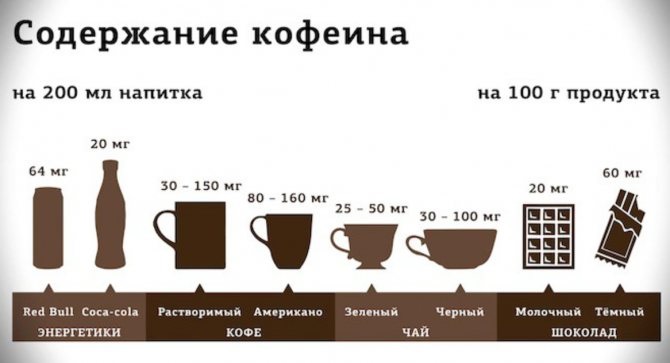
What type of coffee during breastfeeding to give preference?
Coffee requirements for nursing mothers:
- Coffee should be high -quality, natural
- Soluble coffee is not suitable for these purposes, since the raw materials are not used for it the most high -quality
The two most popular types of coffee are Arabica and Robust. Robusta contains twice as much caffeine than the grains of arabica.Thus, coffee during breastfeeding will be more suitable coffee with Arabica beans. Nevertheless, the content of caffeine still depends on the roasting, preparation and degree of grain grinding.
- Espresso -based coffee drinks, like cappuccino and latte, can contain more caffeine than you think. True, depending on where you buy them and how many portions of espresso you ask. Therefore, a nursing mother should be neat.
- It is believed that soluble coffee is not so saturated and contains less caffeine than a burglar drink. But this is a little controversial opinion! The fact is that In the custard product, the share of caffeine is higher, but soluble coffee has a chemical caffeine,which increases the total number and does not affect the body in the best way. In addition, it is the robust of cheap varieties that are taken as the basis of raw materials!
- Moreover, for this type of coffee they do not use the best grains and chemically process them, and this very often cause Allergy to the baby!Of course, a lot depends on the manufacturer.
- Therefore, as a conclusion - a nursing mother should only choose natural coffe!But here you should give a little explanation. It is best to take a ground product, but freshly brewed whole grain coffee Able to increase pressure! And this is already dangerous for both mom and the baby.
Important: during breastfeeding, it is better to reduce the dose of custard coffee than to drink a soluble product. But to reduce the percentage of caffeine, ground grains should not be boiled, but simply pour boiling water and insist.
Consider the content of caffeine depending on the type of coffee per cup of 230 ml of the finished drink:
- Custard - 135 mg
- Fried and ground, percolled - 118 mg
- Fried and ground, filtered - 179 mg
- Fried and ground, without caffeine - 3 mg
- Espresso-76-106 mg
- Espresso without caffeine - 5 mg
Important: to reduce the share of caffeine and the harmful effect of the drink itself, drink coffee with milk or cream!
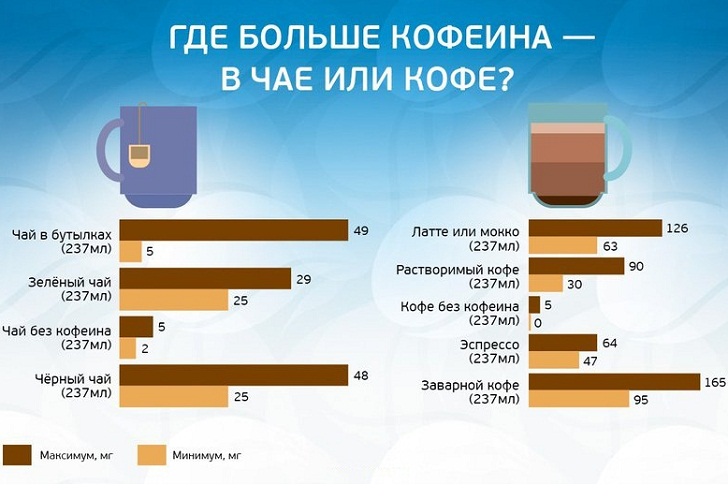
Coffee coffee during breastfeeding: is it so useful?
Let's see whether to drink coffee during breastfeeding without caffeine instead of a regular drink.
- Immediately note that There are no coffee at all without caffeine, But all its share is significantly less. The average content of caffeine in a hidden cup of coffee 200 ml is 95 mg, while the average content of caffeine in coffee without caffeine is about 3-5 mg. Coffee coffee may contain no more than 0.1% caffeine. This pushes the idea that such a drink is more harmless to the child's body.
- And the secret is that coffee coffee is carried out after processing coffee beans to remove at least 97% caffeine. Caffeine from beans is removed using solvents, such as Water, carbon dioxide or organic, and sometimes chemical solvents. Then the beans are fried and crushed.
- But you must be careful when choosing coffee. Choose only a good product, consider recommendations even for coffee without caffeine. Because in different countries, standards may differ and, therefore, caffeine content can be higher.
Important: according to statistics, this variety of coffee is more often allergic in children, just because of its additional processing, often chemical solvents.
How to replace coffee during breastfeeding and in what products are there caffeine?
Normal, unchanging breast milk is already the best nutrition for the baby. Of course, a balanced diet is a prerequisite for the production of high -quality breast milk. But it is worth noting that it is impossible to cleanse it directly from caffeine. Therefore, if you drink coffee during breastfeeding, and even on a resistant basis, then a certain share of caffeine always has in your body. Moreover, it is eliminated no earlier than after 14 hours.
It is worth replacing coffee with coffee drinks:
- Chicory, which is also useful for the body
- Barley coffee, which is an exclusively natural product
- And we also cannot miss herbal teas
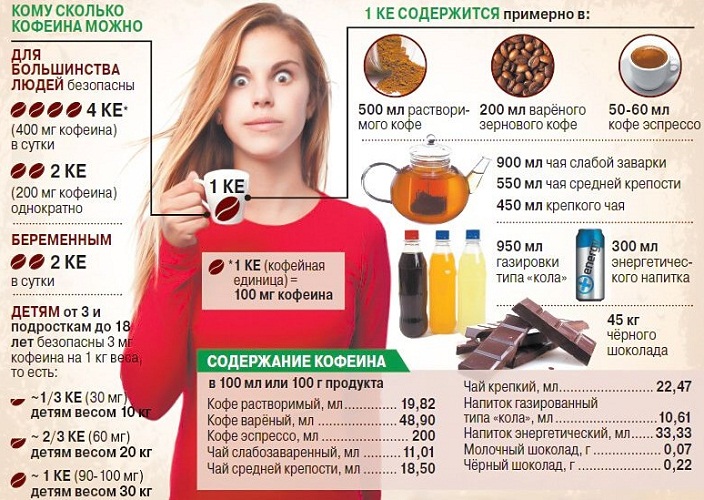
What products should be avoided when using coffee lactating mom?
- Some products can extend the decay period of the coffee molecule so that caffeine remains in the blood longer. An example of this is grapefruit juice.Grapefruit juice contains certain bitter substances, which in the liver lead to slow splitting of caffeine.
- In addition, do not forget that there is caffeine In chocolate, cocoa and the same tea.Therefore, if you drink coffee with GV, then limit their consumption!
At the same time, be sure to increase the use of products containing calcium - cheese, cottage cheese, kefir. Laying mothers always suffer from a lack of calcium, and coffee additionally prevents its digestibility by the body. And also do not forget about iron, because coffee often leads to its deficiency. And follow the water balance - after a cup of coffee, drink a glass of water!
To drink coffee or not, which coffee to choose is your solution. But do not forget that the nursing mother needs positive emotions that will help her be happy. And if mom is happy, then the whole family is happy! And if you need to drink a cup of coffee during breastfeeding for happiness today, pamper yourself to your beloved. But put only a natural and less harmful product on the scales.

